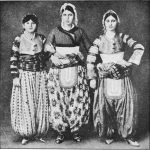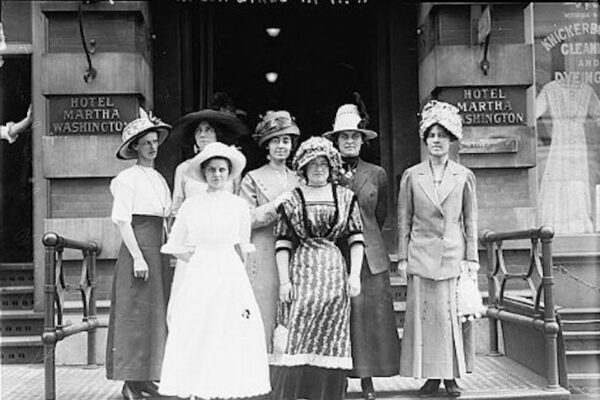
“The curse. Bloody Mary. Time of the Month. Shark Week. Code Red. Aunt Flo.” All over the world, euphemisms exist to discretely convey those four simple words: “I have my period”. In the media, the word ‘period’ was not mentioned on television until the 1980s and it seems the western approach for combatting period stigma is to pretend that it doesn’t exist. But in 2018, the muted subject of the female cycle inspired the central storyline of an entire feature film; which became one of the highest-grossing Bollywood films of that year. Based on true events, “Pad Man” follows the story of struggling labourer turned social activist in India, who developed low cost sanitary pads for rural women who couldn’t afford the expense. It’s an unlikely love story about a young husband who will do anything for the comfort and happiness of his new bride, but finds himself unaware of the unhygienic and discriminatory practices she is subjected to when menstruating. In a part of the world where the topic of menstruation was discouraged in households and social circles; considered ‘unclean’; he risks being ridiculed and ostracised to generate awareness for women’s health in rural India. Arunachalam Muruganantham has since inspired filmmakers, lectured at Harvard University and was nominated as the 100 most influential people in the world…
In fifteenth century Egypt, menstrual blood was a common ingredient in medicines and ointments. In many hunter-gathering communities, a woman’s period was seen as a source of pride; their cycles celebrated and given much attention and praise. Ultimately, perceptions have shifted throughout the centuries across different cultures.
Historian Robert S. McElvaine suspects this shift began when men developed what he coined as non-menstrual syndrome or NMS, which refers to a theory of reproductive “envy” that led males to stigmatize menstruation and socially dominate women as “psychological compensation for what men cannot do biologically.”
Religious texts in the Bible, the Quran and the Torah each contain passages that refer to menstrual blood as dirty. In Leviticus 15:24, women that undergo menstruation are perceived as unclean for seven days and anyone who touches them during the time shall also be unclean. Instead of being praised for bleeding, women were now avoided, excluded, and shamed for it.
This period of exclusion became exacerbated through the centuries, linked to various cultural and religious influences on society. In the Eastern Orthodox religion, a woman menstruating may not receive communion. Similarly, in Orthodox Jewish communities, husbands and wives cannot touch or engage in sexual intercourse. It wasn’t until the late 1950s that the theory about menstrual blood containing toxicity and disease-causing elements was disproven.
It’s difficult to believe that in the 21st century however, that we are still combatting societal stigma surrounding periods.

Arunachalam Muruganantham set out to tackle the problem of the period taboo in his own country. He realized rural women did not have adequate access to the sanitary products they needed, and many were too ashamed to vocalize their concerns.
Since 2006, Muruganantham has provided over 4,000 machines to women in India through grassroots efforts. His machines are given to NGOs, who then employ local women to manufacture low-cost- sanitary pads and distribute them to rural Indian women. Hundreds of his machines are being distributed to other developing countries to provide local women with sanitary pads.
Growing up in a poor Indian village, Muruganantham was dismayed to learn that his wife and female family members used dirty rags and newspapers as sanitary pads. To add to his shock, he learned that the price of menstrual products was too exorbitant for the average lower working-class Indian family. A household would need to choose between food items or sanitary pads, as they could not afford both.

Muruganantham created a low-cost sanitary pad and distributed them to poor women around his village. This feat proved hard, as he could not find enough women to discuss menstruation with him. He lacked willing participants to try his sanitary pad inventions. Similarly, Muruganantham was discouraged by his family to continue his work, as it brought much shame to them. Women would rather expose themselves to potentially life-threatening infection and death than tell a male family member or friend that she was menstruating.
Despite much progress being made, in Western society, there is still the unspoken norm that this natural healthy sign that a woman’s body is functioning normally, should remain hidden. According to one Australian survey, school girls voted that their period experience would be more manageable if more ‘soundless’ menstrual products were available.
The need for discreet period products is high amongst women. As a result, many businesses are marketing their feminine products to be smaller and more discreet to appeal to consumers. Unfortunately, this works as a double-edged sword. By marketing products to be less noticeable, it reinforces the shame and stigma associated with periods; a topic that should be neither seen nor heard, minimising the chance of valid discussions surrounding the accessibility of menstrual products.

Studies have also shown that women often feel ashamed to buy these products in the supermarket and would avoid purchasing them from male checkout employees. Despite recent efforts and campaigns made to normalize periods, openly discussing one’s period is seldom brought up in a social circle, especially in a males’ presence.
Many UK women report feeling ashamed to tell their fathers that they have their period, which can pose a problem for single-parent households, whereby the sole parent or guardian is male. Girls may be too afraid to tell their fathers about their period and ask for menstrual products, depriving them of adequate care.
Period stigma also prevents women from publicly supporting a shared sentiment: that woman menstrual products are too expensive. Many businesses compete to make sanitary products discreet, soundless, and smaller. However, this optimization does not come with the label “more affordable.” It is estimated about 137,000 girls in the UK miss school each year because of a lack of access to sanitary products. Research from the University of Queensland found that in Australia, young women felt forced to steal menstrual pads because packets could cost up to $10 each. Homeless women were also particularly vulnerable to the high price of menstrual products, with thousands admitting to using old clothes, newspapers, and even leaves during their cycle or stealing from supermarkets.
Ending “period poverty” has noticeably raised more awareness in the mainstream media in the past few years. Just earlier this week, French President Emmanuel Macron renewed a promise made in December that women’s dignity must be protected from what he termed an “invisible injustice” that could no longer be tolerated. France’s plan follows New Zealand’s decision to roll out free products to all students earlier this month, and Scotland, which became the first country to make period products free in 2020.
Despite increasing attempts to normalize the stigma however, women are largely still left out of their own debate while prominent male figures and legislators still champion women’s period concerns for them.

Stemming from outdated cultural and religious influences, perhaps it’s time we recognised this taboo as a form of misogyny; one that silences women and instills fear and shame. And if we don’t discourage an attitude of embarrassment and discretion from the outset, it will continue permeate through into general society. So let’s talk about it. Period.
















